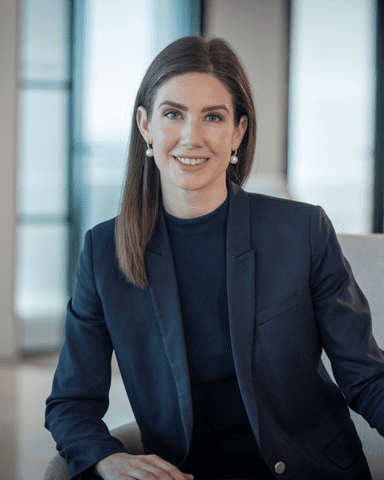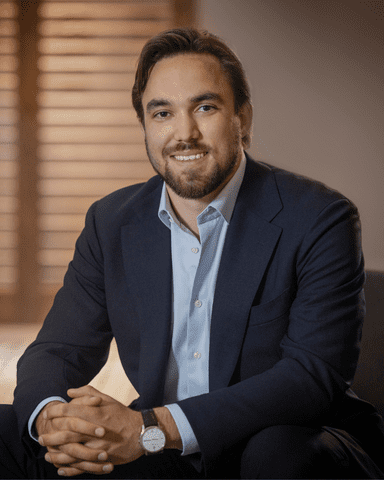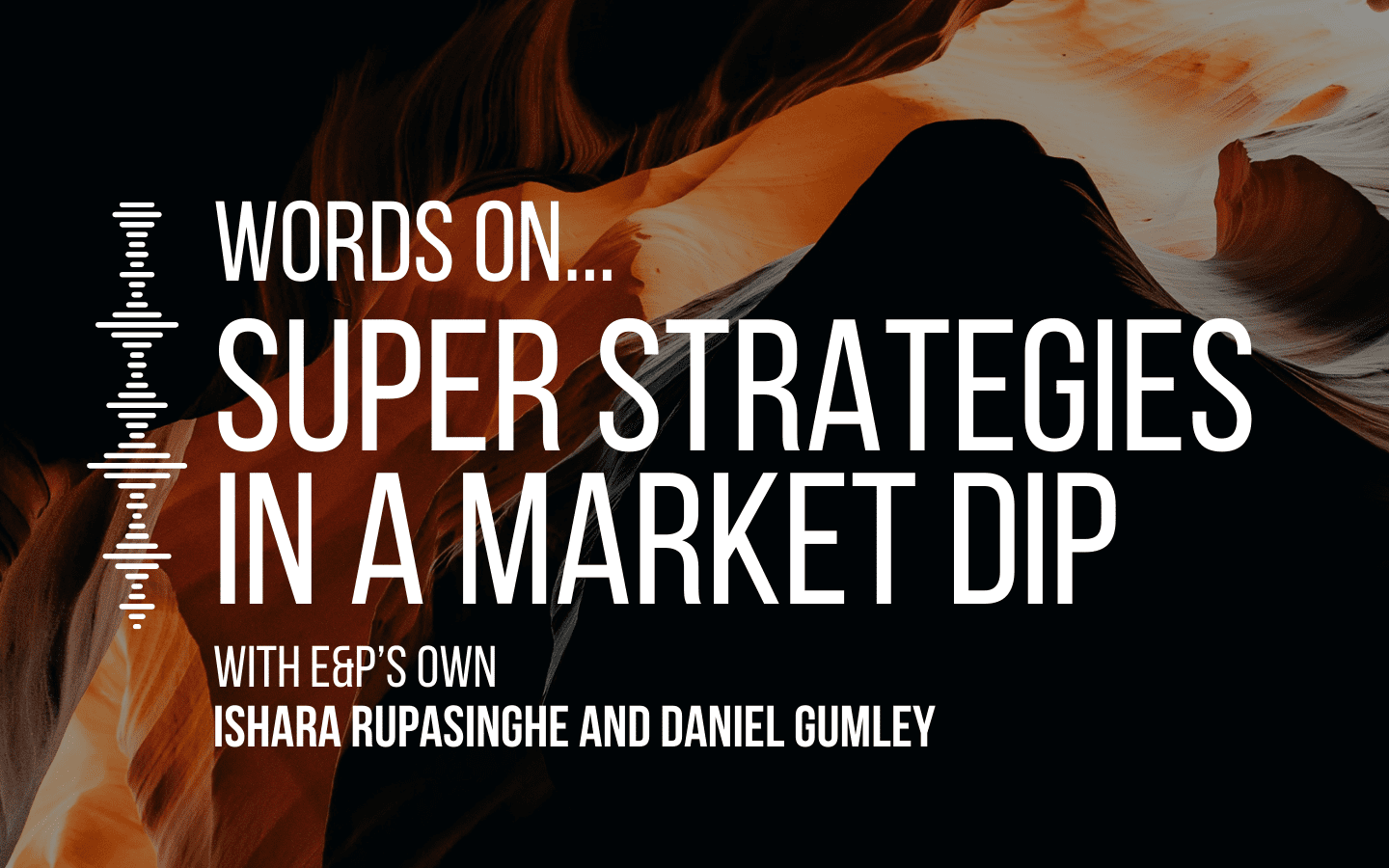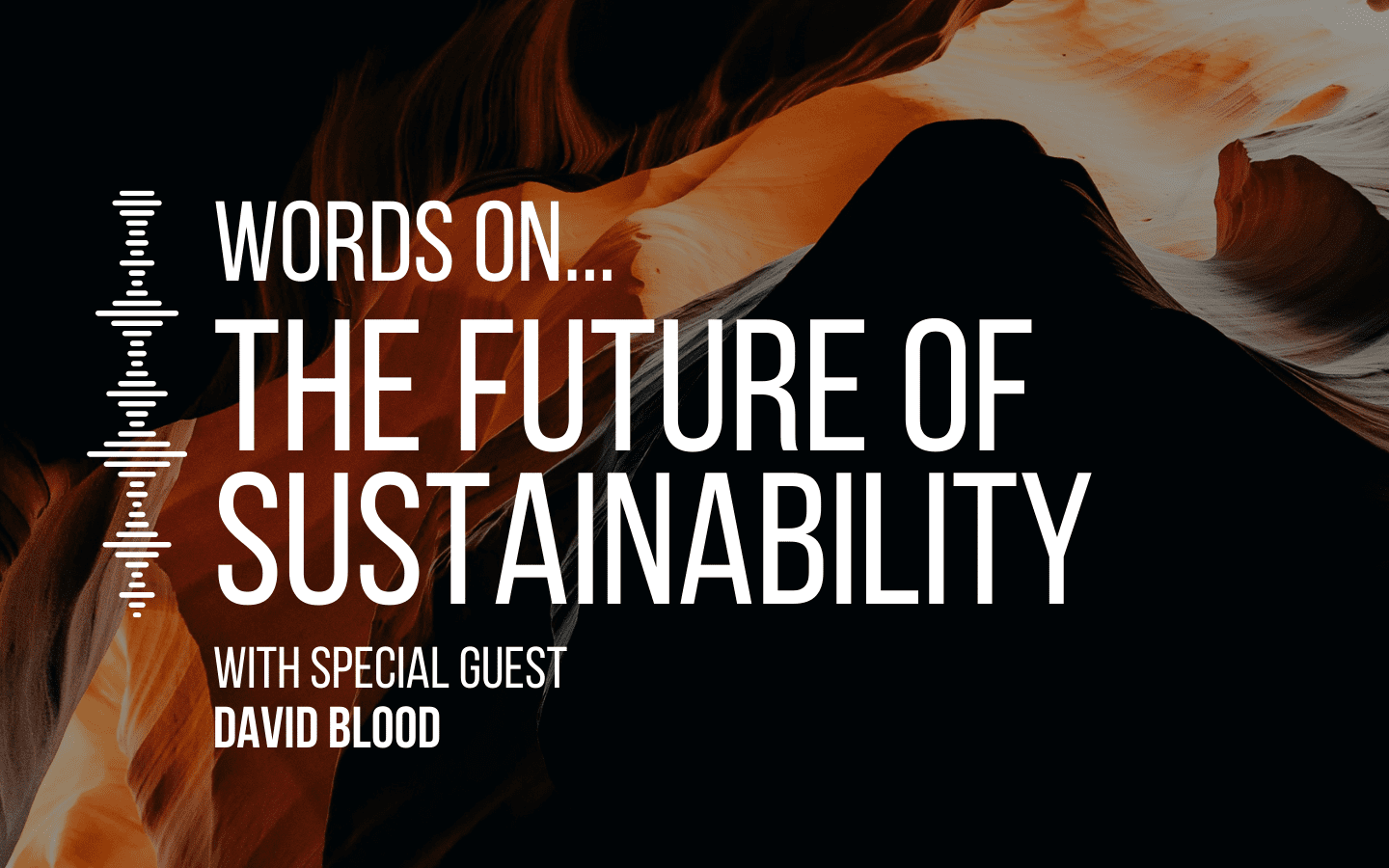


Words on the COP29 Conference
In this episode of Words on Wealth, Senior Investment Adviser and host Lucy Meagher speaks with Caleb Adams, Director of ESG and Sustainable Investment at Evans and Partners, about his recent experience at COP29 in Baku, Azerbaijan. COP (Conference of the Parties) is an annual climate summit held by the United Nations, dedicated to advancing global climate action. This year’s focus was on financial commitments and sustainable development goals. Caleb shares his firsthand insights into the challenges of global collaboration, the influence of geopolitics, and the growing intersection of climate action and investment trends. Tune in to discover what COP29 means for sustainable finance and the journey to net-zero emissions.
This episode is also available on Apple Podcast.
Introduction
Welcome to Words on Wealth, a podcast by Evans and Partners that unpacks the key trends and opportunities shaping markets, the economy and your financial well-being. Join us as we make sense of the issues that matter most to you.
Lucy Meagher
Thank you for joining us for the Words on Wealth podcast. My name is Lucy Marr. I’m a senior investment advisor in the Sydney office. And today I’m very pleased to be joined by Caleb Adams. Caleb is a director in our ESG and sustainable investment team. And Caleb has been very fortunate to attend the most recent COP29 conference in Baku in Azerbaijan. And he’s here today to tell us a bit about his learnings and what it was like to attend there. So welcome, Caleb. Thanks for coming on. I thought I’d start by, can you just take it right back for listeners who might not be so across it? What are the COP conferences and what are they all about?
Caleb Adams
Hi Lucy, thanks for having me. So COP29 is the latest of the annual climate conferences. They happen every year and they’ve developed into what is the largest and most significant gathering to progress climate action and multilateralism globally. So they happen each year and the numbers represent the annual iteration. So this is COP29, next year will be COP30 and so on and so forth. It’s a important forum to solve some of the most challenging problems that we’re facing today. It’s something that we pay close attention to given the significance from a sustainable investment point of view, both in terms of how clients are allocating capital but also what the global transition and the direction and the pace of that means for broader investment trends as well. So one of the major things that inform this is the Paris Agreement, which was ratified in 2015 at the COP21 conference. This was a major milestone in terms of the commitment of countries to limit global average temperature rises below 2 degrees and with the further ambition to keep it below 1.5 degrees as well.
Lucy Meagher
So as somebody who works closely within sustainability and keeps an eye on these sort of things, are the COP conferences, are they seen as a bit of a beacon for progress in that space? And I suppose how effective have they been in the past?
Caleb Adams
Yeah, absolutely. It’s both a compass in some ways, but also the Paris Agreement. So it set a lot of ambition in terms of the commitment, in terms of temperature alignment, but it also set the roadmap and the rules for multilateral cooperation over the coming decades. So many of the major announcements that we see each year, such as the Dubai Agreement on Article 8 regarding loss and damage financing, or the announcement this year around Article 6, so, regarding global carbon markets. These were all identified as priorities and future work streams during the original Paris Agreement. So it sets up the agenda, if you will, for the coming years of action. Another really important framework that was set through the Paris Agreement is the idea of nationally determined contributions. And this is the mechanism by which individual countries make their local commitments.
Lucy Meagher
And so what’s Australia’s nationally determined contribution?
Caleb Adams
There are currently two main targets, a 2030 target to reduce greenhouse gas emissions by 43 % as compared to a 2005 baseline and a 2050 target of achieving net zero emissions. And with NDCs being updated every five years under the Paris Agreement, Australia is actually due to submit its next contribution in 2025. For those interested in getting a sense of what this may look like, I’d encourage people to look at the recently passed Future Made in Australia bill and some of the work of the Net Zero Economy Authority, which is required to provide advice to government on these commitments and pathways.
Lucy Meagher
Okay, so that’s generally the premise for the COP conferences. mean, COP29 specifically, you what were the intentions going in and what was the vibe on the ground being there in Azerbaijan?
Caleb Adams
So this year was meant to be the finance COP. There a lot of conversations regarding mitigation, but also adaptation, following some of the announcements regarding loss and damage, and a lot of the momentum that had been happening and building through prior COPs. There was hope that we would get large commitments to the tune of potentially 1.3 trillion per annum from developed countries to help developing countries solve some of the really complex challenges of an energy transition and safeguarding human wellbeing and built environment from the impacts of a changing climate as well. So that was one of the main priorities. In terms of the feel on the ground, they’re complex challenges to solve and they involve a very broad stakeholder base with many countries, civil society, Indigenous peoples, youth and so on. So it can be hard to collaborate in that sort of setting. There’s a bit of chaos of course, but I think at the end of the day, a lot of the progress needs to be done incrementally. And so the small achievements and partnerships that you see happening in the spaces with industry stakeholders or the engagement between industry and policymakers, it’s a really valuable and important way of progressing climate action, both locally and globally.
Lucy Meagher
Caleb, when we’re about vibe on the ground, Azerbaijan, Baku, obviously an oil state, I mean, does that have any impact on the feel or the priorities of the conference?
Caleb Adams
It certainly has an impact. The oil and gas industry is very visible there, from the makeup of the economy through to local sightseeing with wellness centers where you can bathe in crude oil and fire caves where excess leaking natural gases form a cultural or part of their culture. it’s… really part of their identity, but also the economy as well. So it does impact the way that the presidency is perceived. There were mixed feelings about the integrity of that in terms of climate ambition and how the COP conference can push things forward at the pace that is required. But at the same time, it’s important that we don’t isolate economies and communities that are dependent upon fossil fuel industries. If we don’t bring these communities into the conversation as a part of the solution and provide pathways that are fair to the people and the people that work in these spaces, then we won’t have an effective transition. So it’s a fine balancing act in maintaining the integrity of the ambition and the technical solutions, but also having a fair and pragmatic approach that is comprehensive in who it involves.
Lucy Meagher
That’s a really good point.
And I wanted to touch back on that funding piece. So you mentioned, you know, number $1.3 trillion, you know, for annual spend from developed nations. And I understand there’s been, you know, a bit of contention around what it will actually cost, the size of that investment. How, I mean, how has that figure landed at? What are the sort of the considerations that go into a cost figure like that?
Caleb Adams
Yeah, so the agenda item was called the new quantified collective goal. what that meant was, so previously developed countries had committed to an initial goal of mobilizing 100 billion US dollars per annum by 2020. And this was set through the Copenhagen Accord. This was fairly well accepted as insufficient for the scale of the problem that we were facing. And so that’s where the $1.3 trillion ambition came from. And that’s an arbitrary figure. It’s not a formal figure. The Baku conference ended up securing a commitment from parties to mobilize at least 300 billion US dollars per annum by 2035. And so that’s a really important milestone in terms of progressing further towards that goal. But needless to say, it’s still insufficient. It’s challenging though at the moment with government spending pressures and other things that can impede the ambition of those commitments and also some of the geopolitical and local political things that are happening in different countries where there’s a bit of uncertainty around what those policy environments can look like as well. So it is a positive step forward but there was a general sense that it could have been more ambitious as well. It does highlight though the need for funding beyond public spend. There’s a big gap for private investment and impact investment to augment that 300 billion that we’ve now secured. So one of the things that is spoken about a little bit through some of the multilateral development banks is a shift in focus away from just quantity but also towards quality and what they mean by quality is the use of more innovative measures with blended finance from government and public spend that can mobilize larger scale from institutional and private investors as well.
Lucy Meagher
That’s really interesting. So a large part of it is about sort of corralling and incentivising that private investment piece to complement the efforts that are already going on publicly. much progress in that regard or is that still relatively nascent?
Caleb Adams
The best example that I saw through COP29 was the discussions from the multilateral development banks. They’re working quite collaboratively to progress a lot of those platforms that bring in public, private and blended finance. There’s a clear role that’s been identified for philanthropy, for example, that can provide first loss or concessional capital to bring in some of that leverage that enables scale, but there’s still a long way to go. And importantly, these conversations seem quite centered on development finance, and that’s largely to be received by developing countries, small island developing states and so on. So there’s still a gap in how we fast track the finance mobilization in developed countries, so countries like Australia where we don’t receive development aid. And we still need to engage the private sector to solve many of these challenges that we’re seeing a lot of progress through in the policy forum. But there’s still a long way to go.
Lucy Meagher
So how about investment markets? mean, how do the outcomes of COP29 influence investment markets, if at all? And are there any climate-related investment trends that we’re seeing that investors should be aware of?
Caleb Adams
Certainly, I think there’s a stronger relationship that’s building in these sort of conferences that helps facilitate the interface with investment. It is one of the largest conferences in the world. The connections and the collaboration that happens between policymakers, industry, civil society, it enables that connectivity and awareness to engage in these trends and to support the commitments that are being made at a multilateral level. I think it also provides clarity, which is really important to manage risk and engage in long-term mega trends like an energy transition. So steady progression of the COP work and the commitments that governments around the world put forward, they provide a lot of information that is very important for investors to make good decisions. I think we’re also seeing increased specificity in terms of how we need to decarbonize and ensure resilience. So things around technology, those conversations around blended finance, for example, and sector specific decarbonization pathways where you might get the more bang for buck in some industries in terms of decarbonisation as compared to others. So prioritisation within sectors and the technology is required to do.
Lucy Meagher
Yeah, it’s really interesting. think one of the, you know, ultimately quite confusing things for investors at the moment is the geopolitical landscape that these discussions are taking place in because we can’t, you know, sort of delineate the two. And particularly, suppose, you know, COP29 was happening, you know, in the aftermath of the US elections. We saw, you know, the last time Trump during his presidency, he actually withdrew from the Paris agreement. You know, so I think it is, there’s a lot of uncertainty around the scope and the extent to which the US will be partaking in any outcomes from the COP conference. How was that spoken about on the ground in Baku? I mean, what’s the feeling around that geopolitical environment?
Caleb Adams
It’s an interesting one. The US, at least from the engagement that I was seeing, it seemed a little bit quieter than it may have been if the election had gone the other way. Having said that, there was probably less uncertainty compared to what may have been about following Trump’s first election. But at the end of the day, the conversations with many of the US counterparts that I had were quite pragmatic. This isn’t the first Trump administration that they would have been working with a lot of the public servants that work in the climate policy space, they understand that they have a job to do in working with the government that is elected. So there’s an element of pragmatism there. In terms of though the politics that surrounds that, some of the presidential nominations have been interesting, but that does include figures like Elon Musk, who are very prominent in decarbonisation and electrification. So it’s unclear where that will land given how these industries have become increasingly prominent and important. But also some of the existing policies from the US like the Inflation Reduction Act have been quite favourable to Republican states and communities. So you’re seeing the normalisation of energy transition policy and, well, again, there’s still uncertainty as to how that will land. It still provides a bit of confidence that the trend towards a decarbonized economy will continue one way or another. was an analogy that one of the chief economists of one of the largest rating agencies said that during New York climate week that has stuck with me and he framed it like putting jet fuel on a bonfire. The idea was that policies like the IRA, the Inflation Reduction Act, will fast track a decarbonisation along with the positive posture of that kind of administration. But at the end of the day, even without an accelerant, these things will continue to happen. A lot of these industries have been very well established towards a decarbonised agenda, an electrified economy and so on. And so only so much can happen over a four year span. So it may shake things up a bit, but a lot of these things are already moving in that direction. Investors are looking that way already and industry are moving in that direction as well.
Lucy Meagher
So that’s great. It sounds like there are some, you know, some silver lining, some reasons to be hopeful. I suppose overall, what were your takeaways from the conference in terms of looking ahead, you know, into how I suppose both effective the conferences will be in the future, the prospects for those, but also for meeting those climate change targets.
Caleb Adams
Well, we’re seeing the announcements and the commitments that are being made at these conferences be increasingly focused on the implementation of the Paris Agreement. So things are becoming increasingly specific about carbon markets, resilience, loss and damage climate financing and so on. So that’s a really positive shift from is this a priority? How urgent is it to then how are we actually going to solve the problem? And so I think we’ll continue to see meaningful substance of these agreements as we move forward through the agenda in Berlin next year and hopefully in the Australia Pacific the year after that. And that’s the second one. Australia is currently hoping to host COP31 alongside the Pacific, which is a great opportunity for Australia to showcase leadership in the space, use the presidency to drive ambition, and also add in new elements to the ongoing climate discourse around things that are relevant to the Australian Pacific context, so whether that’s First Nations affairs, Pacific diplomacy and so on, these are really interesting things that may not be a high priority of an Azerbaijan presidency. So that’s an exciting opportunity there.
Lucy Meagher
That’s very exciting. I didn’t realise that. And I suppose, you when you speak about the Pacific nations as well, that’s, you know, ever pressing because often, you know, they feel the impacts of climate change more so than some of the developed markets and then they have, you know, smaller wallets with which to treat the problem. So that’s hopefully, you know, will be a great way to shine a light on those areas as well.
Well, thanks, Caleb. Thank you so much for those insights about your time. It’s really, you know, it’s very rare to have that sort of primary insight into the conference. So we really appreciate it. And yeah, thanks for your time today.
Caleb Adams
Thanks Lucy.
Disclaimer
This podcast was prepared by Evans and Partners Proprietary Limited AFSL number 318075. Any advice is general advice only and was prepared without taking into account your objectives, financial situation or needs. Before acting on any advice you should consider whether the advice is appropriate to you. Seeking professional personal advice is always highly recommended. Where this presentation refers to a particular financial product you should obtain a copy of the relevant PDS, TMD, or offer document before making any investment decisions. Past investment performance is not a reliable indicator of future investment performance. Directors, employees and officers at Evans & Partners and its related entities may have holdings in securities listed. Any taxation information is general and should only be used as a guide.
Tags
Disclaimer
This podcast was prepared by Evans and Partners Pty Limited AFSL 318075.
Any advice is general advice only and was prepared without taking into account your objectives, financial situation or needs. Before acting on any advice, you should consider whether the advice is appropriate to you. Seeking professional personal advice is always highly recommended. Where this presentation refers to a particular financial product, you should obtain a copy of the relevant PDS, TMD or offer document before making any investment decisions. Past performance is not a reliable indicator of future performance.
Directors, employees and officers of Evans and Partners and its related bodies corporate may have holdings in the securities discussed. Any taxation information is general and should only be used as a guide.
This communication is not intended to be a research report (as defined in ASIC Regulatory Guides 79 and 264). Any express or implicit opinion or recommendation about a named or readily identifiable investment product is merely a restatement, summary or extract of another research report that has already been broadly distributed.



